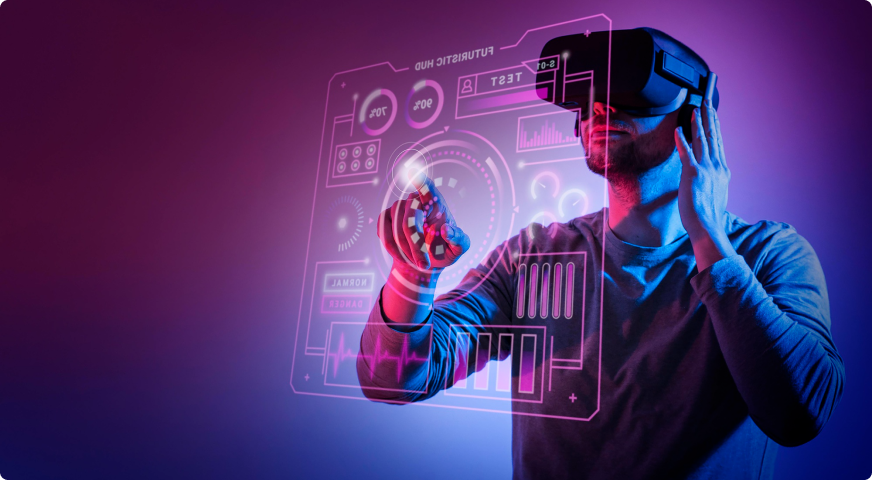In todays fast-paced world, it is undeniable that technology
has become an integral part of our lives. From the way we
communicate to how we work, learn, and entertain ourselves,
technology has revolutionized every aspect of human existence.
But have you ever wondered how this transformation came about?
In this blog post, we will explore the journey of technology
and how it has changed the world as we know it.

The Dawn of Technological Advancement
The seeds of technological progress were sown centuries ago
with groundbreaking inventions like the wheel, agriculture,
and the printing press. However, it was during the Industrial
Revolution in the 18th and 19th centuries that technology
truly began to shape the modern world. Innovations such as the
steam engine, textile machinery, and mass production
techniques propelled society forward, improving efficiency and
laying the foundation for future advancements.

The Digital Revolution
The true game-changer came with the advent of the digital age.
The invention of the transistor in the mid-20th century paved
the way for the development of computers and ushered in the
era of information technology. Computers evolved from
room-sized machines to compact devices, eventually becoming
accessible to the general public. The rise of the internet
further accelerated progress, connecting people globally and
facilitating the exchange of information like never before.

Impact on Communication and Connectivity
Technology has revolutionized communication, breaking down
geographical barriers and connecting people in real-time. The
evolution of telephony, from landlines to smartphones, has
made communication instantaneous and convenient. Social media
platforms have transformed the way we interact, allowing us to
share experiences, ideas, and opinions across the globe. The
world has become a smaller place, and the exchange of
information has become effortless.

Transforming Industries
Technology has disrupted traditional industries, reshaping
business models and revolutionizing productivity. The
automation of manufacturing processes through robotics and
artificial intelligence has increased efficiency, reduced
costs, and improved product quality. Sectors such as
healthcare, transportation, finance, and entertainment have
undergone significant transformations, introducing new
opportunities and challenges.

Empowering Individuals
Technology has empowered individuals by democratizing access
to information and knowledge. The rise of online education has
made learning accessible to people of all ages and
backgrounds. E-commerce platforms have opened up new avenues
for entrepreneurs, enabling them to reach a global market.
Mobile applications have revolutionized the way we manage our
daily lives, from banking to fitness tracking, making tasks
more efficient and convenient.

Addressing Global Challenges
Technology has also played a crucial role in addressing global
challenges. It has revolutionized healthcare with advancements
in medical equipment, diagnostics, and treatments. Renewable
energy technologies have emerged as sustainable alternatives,
combating climate change and reducing dependence on fossil
fuels. Data analytics and artificial intelligence have
contributed to better decision-making and problem-solving
across various fields.

Technology is not just a tool; its the catalyst that propels
us into a future of endless possibilities, where innovation
knows no boundaries.
- Artificial Intelligence (AI) and Machine Learning
- Internet of Things (IoT)
- Cybersecurity and Data Privacy
- Blockchain Technology
- Cloud Computing
- Virtual Reality (VR) and Augmented Reality (AR)
- Automation and Robotics
- 5G Technology and Connectivity
- Biotechnology and Genetic Engineering
- Quantum Computing
- Big Data Analytics
- Sustainable Technology and Renewable Energy
- Autonomous Vehicles and Smart Transportation
- E-commerce and Online Marketplaces
- Digital Transformation in Businesses
- Social Media and Digital Marketing
- Health Tech and Telemedicine
- Smart Homes and Internet of Things (IoT) Devices
- Education Technology (EdTech)
- Future of Work and Remote Collaboration

Conclusion
Technology has also played a crucial role in addressing global
challenges. It has revolutionized healthcare with advancements
in medical equipment, diagnostics, and treatments. Renewable
energy technologies have emerged as sustainable alternatives,
combating climate change and reducing dependence on fossil
fuels. Data analytics and artificial intelligence have
contributed to better decision-making and problem-solving
across various fields.
